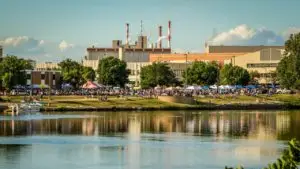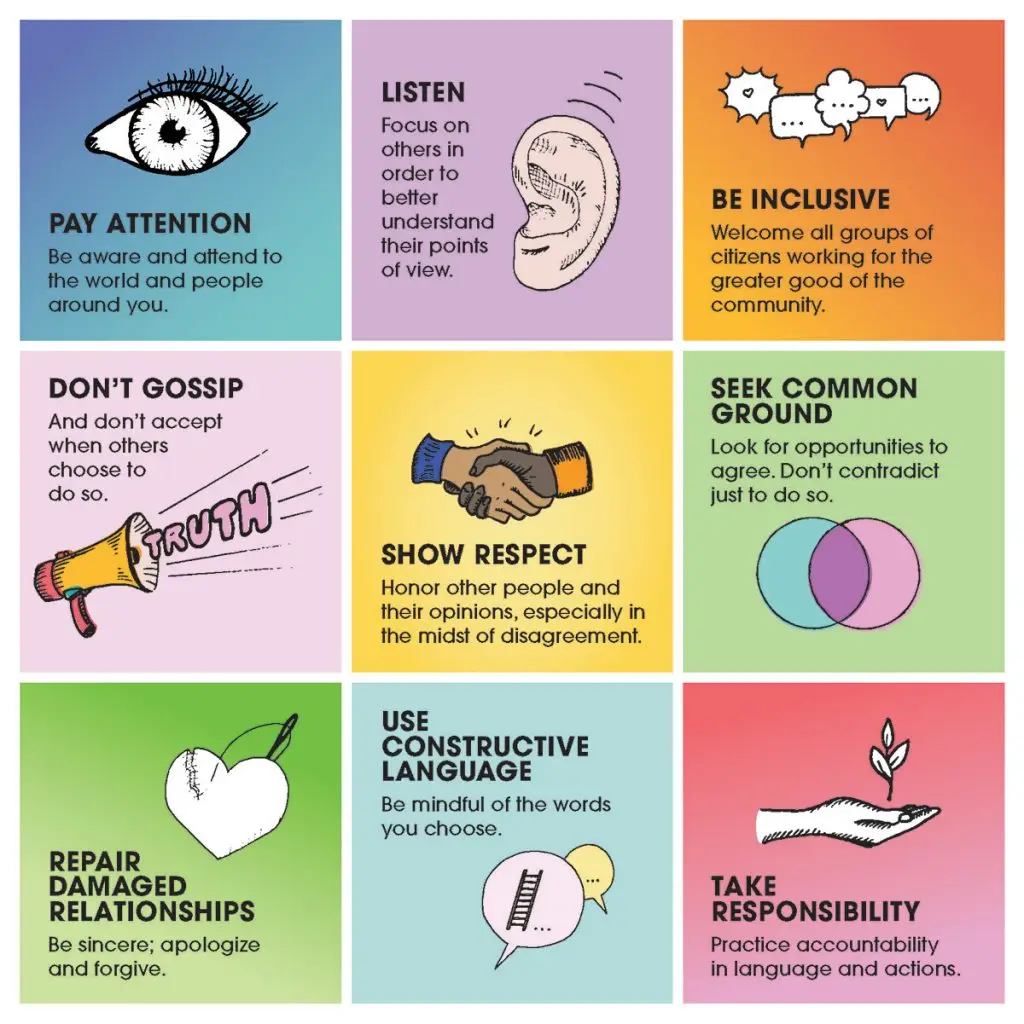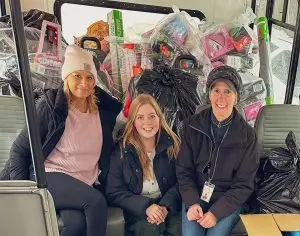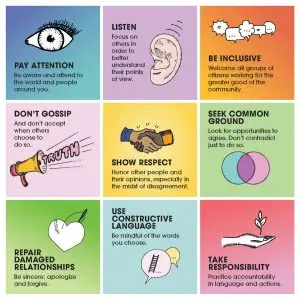Keynote speech by Kelly Ryan, Incourage CEO
Council on Foundations Rural Pre-Conference, Washington D.C., April 9, 2016
Thank you, Janet. And thanks to all of you – my colleagues – for sharing the stories of your work today – and for your time here this Saturday afternoon.
I want to share with you an emerging success story – an example of how we can set a course and make progress toward achieving communities that work for all. The place I’ve lived for the past 25 years was once a decimated and demoralized community. It is now a place where hopes and dreams are being realized.
The people of Wisconsin Rapids are at the center of the change. They are changing the community by putting their values above all else.
The first thing most people learn about Wisconsin Rapids is it was once the smallest city in America to headquarter a Fortune 500 company. Those glory days are long gone.
In 2000, Consolidated Papers – the core industry in the region – was bought by a multinational and moved its headquarters to Finland.
We lost 40% of our jobs … Forty percent.
In Wisconsin Rapids, like in so many places, that culture of an industrial economy – a culture on which people built not only their own identity but their relationships with one another – evaporated. People were hollowed out. As was their pride in the place they’d called home for generations. The disbelief dissolved into a numbness.
Today – this story – which I’ve been telling for over a decade now – is all too familiar. Too many communities don’t work well for the people who live there. Maya Angelou best captures where we are today in Wisconsin Rapids with this favorite quote.
“You did then what you knew how to do, and when you knew better, you did better.”
I love this quote. This quote is a big tent. It is generous in not casting blame for current conditions. It is compassionate in assuming there is a continuum of growing in understanding as we grow in knowledge. There is an assumption that our better angels will act from a moral imperative when we ‘know better’.
“When you knew better, you did better”.
I believe we all know better.
In the many years that our foundation has been focused on community change, there has been nothing more important than gaining great clarity and ownership of our Vision and Values.
Vision and Values define Incourage’s role in community; not the size of our endowment.
Now, I’m not just talking about values stated on paper or a website. Values that are made clear to our stakeholders and owned by all of us – board, staff and residents – and evident in every aspect of our work. A Vision that is unifying and relentlessly pursued every day with integrity and passion. Both of these clearly stated in a transparent manner put a stake in the ground about what kind of communities we are seeking to create.
I’m not saying my values need to be yours, however, I have a hard time believing that there isn’t a community or community foundation in America that doesn’t want to work well for all people – and in that statement there are implicit values.
Incourage established our vision – “A Community that Works well for All” – and our guiding principles for our work – nearly a decade ago and we have been working every day since then to help fully realize them. This is long-term work.
We have a permanent commitment to our place – as do all of you. This unique characteristic, along with a broadly inclusive mission, informs a holistic approach to our work, treating the community as a whole ecosystem.
We’re Resident Centered – putting people at the center of our work. We operate from a central belief that people are our most important asset and positive community change happens when individuals have the opportunity to realize their full potential.
And, we’re Values – Led. Specifically the values of Equity, Opportunity and Shared Stewardship.
Equity and Opportunity are relatively common terms these days; shared stewardship is not. We believe shared stewardship is vital.
I just want to take a minute to read the definition: “The commitment of all to grow and safeguard essential community assets – human, social, economic, cultural, environmental – for the common good”.
Shared Stewardship is a unifying value directly anchored in our unique place-based missions. Residents who feel a sense of ownership, shared responsibility and shared destiny by virtue of a shared place are essential in shaping healthy, sustainable and inclusive economic growth.
Equity and Opportunity matter; Shared Stewardship holds us together with common bond in our work. I want to give you tangible examples of how we became a Values Led Institution and what it has meant to our work.
We began with an organizational commitment to embed the values and norms we espoused into the DNA of our institution.
Key to this was identifying, assessing and creating a strategy to leverage and deploy the full range of our capitals as Deb and Janet have been talking about here today. And, I would be remiss if I didn’t cite the powerful speech given in our centennial year of 2014 by Ambassador James Joseph who implored us – as community foundations realizing their full potential the next century – to connect and leverage all capitals in pursuit of just communities.
A powerful example of this change at Incourage is our Investment Policy Statement – 24 months in the making with the support of an impact advisor, traditional oversight firm and cultural anthropologist – it is truly a Capital Deployment Strategy.
In it, we affirm and reinforce our values and vision, by investing first in local organizations, projects and funds that are committed to increasing equitable access to opportunity for residents in our region.
One of the specific strategies I’m particularly excited about calls for screening our conventional securities—stocks and bonds–to identify and invest in those that are aligned with our values and headquartered or focused in our region and state.
Consistent with our commitment to shared stewardship, we feel that it is our responsibility to practice shareholder activism.
We will maintain—and in some instances secure–strategic holdings in companies operating within our region that are not aligned with the goal of realizing a community that works well for all people.
We do this in order to hold those companies to account and seek to influence their management to adapt practices that are consistent with respect for workers, communities and a healthy, sustainable environment. This strategy changes the dynamic of the relationship between corporation and community. In our case what had been paternal benevolence for over a century quickly eroded into multiple owners after that original sale to a multinational. Owners that operated behind the façade of a paper company but were actually activist hedge funds seeking to maximize shareholder value through short-term profit.
Most recent example of disinvestment was New Page Corporation – actually owned by Cerberus Venture Capital – declaring bankruptcy and selling to Verso Paper – actually owned by Apollo Venture Capital.
Within one year, after selling off much of the remaining assets (natural resource/timber holdings) VERSO declared bankruptcy just a few short months ago.
What had been a $4.8 billion dollar paper company was reduced to being delisted, trading at 3 cents a share and Apollo has since dumped their majority share stake in the company.
The community has had no voice and relatively little true understanding of the trajectory of disinvestment.
Why would we – as stewards of our community capitals – not invest in corporations that impact the very communities we are working so hard to change?
I want to say how proud I am of our board of directors to embrace the idea of active ownership as a values decision – we have courageous trustees with backbone.
Bruce Springsteen – “The Boss” – summed it up quite well this morning while I was on the elliptical – when explaining why he had cancelled his performance in North Carolina to protest anti-gay legislation. “This is the strongest means I have to make my voice known”.
Our investment policy strategy is one example of how we have put people back at the center of our work.
After all, putting people back at the center is the definition of philanthropy – love of humanity. Doesn’t say just some of humanity; all of humanity. Restore the LOVE.
Pope Francis quote – love and compassion – ignore the ‘unthinking adherence to embedded orthodoxies’ – let love, compassion and common sense prevail.
If restoring love and compassion matter, then we need to rethink to what we assign value and how our capitals are deployed.
Incourage is living ‘people at the center’ through all our capitals and their coordinated deployment. No better example of this than the Tribune Building.
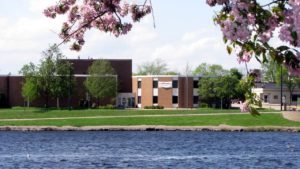 In 2012, Incourage acquired a beautiful, historic building on the banks of the Wisconsin River in the center of our downtown that had been sitting underutilized for years. We could have bulldozed it and sold the land, reinvesting that money in our work. But we chose to do something more valuable.
In 2012, Incourage acquired a beautiful, historic building on the banks of the Wisconsin River in the center of our downtown that had been sitting underutilized for years. We could have bulldozed it and sold the land, reinvesting that money in our work. But we chose to do something more valuable.
Wisconsin Rapids had for decades relied on resource extraction, the paper mill. The decision-making power about what happened with the water and waterfront – its use, control and frontage allocation – was held by a select few.
Fifteen years after Consolidated Papers moved from our region, the dormant riverfront is still seen as a regional symbol of the old unsustainable economy that left us behind.
To this day, you can’t have a riverfront dining experience in our downtown. It’s not an unsolvable problem, in fact it’s the opposite. It’s simply a problem that nobody felt empowered to solve before. The Tribune Building is changing that. After Incourage purchased the building, we turned it over to the community to let them decide how it would be used.
Our only requirement was that the building be used to facilitate the vision of a community that works well for all.
That charge unleashed something truly exciting.
Over the course of 2 years, more than 2,000 residents have participated in a user centered design and community building process. The Tribune’s design reflects resident priorities, including its designation as the first LEED building in the City.
It not only reflects resident priorities, it capitalizes on community assets, including a microbrewery, culinary test kitchen, and a creative workshop and maker space where people can try…create…get comfortable with failure…and gain the self confidence to succeed.
We call the Tribune a ‘community accelerator’ – accelerating economic growth and opportunity, environmental sustainability, learning, creativity and networks for community benefit.
To the community, this is about so much more than a building. It is about accelerating change and a movement toward an inclusive and sustainable local economy. It embodies a commitment to equity—and a system of shared value where no human capital gets left behind.
We expect the Tribune to open in 2017, however, it has already had a sustainable impact. There is a movement underway. A movement of engaged residents and for the first time in years, the people in Wisconsin Rapids will tell you they truly feel engaged and are actively shaping the future of their community. This active engagement extends beyond the Tribune and is surfacing in neighborhoods, civic groups, public meetings – people are showing up and getting involved.
Speaking of showing up and getting involved – this picture depicts our annual community picnic, held this year in front of the Tribune Building. Five years ago we determined our traditional annual meeting approach was not values-aligned and instead we organized a community picnic. Local food, local vendors, free and open to all – only requirement you meet someone you do not know from our community.
This past summer was the fourth year and nearly 6,000 people showed up. Over 10% of the population. 19 local food vendors either donated food or sold it to us at cost. Nobody made a profit – thousands of volunteers. People from all walks of life. It has truly become “Shared Stewardship” in action.
Putting people back at the center increases not only their agency and potential, it increases the agency and relevance of our foundations, community institutions and our communities. Ultimately it can show us the way forward as a nation.
In closing… I want to thank you for your attention and recall a comment made several years ago by Nick Deychakiwsky of the Charles Stewart Mott Foundation – both Nick and Mott have been tireless champions of the unrealized potential of community foundations.
They and Ford Foundation were the impetus behind the clarion call to examine the world changing around us and our relevance in the seminal report “On the Brink of New Promise: The Future of U. S. Community Foundations”.
Many of us will remember a campaign that was seeded in Michigan and ultimately adopted as a tag line across the nation. A national branding effort, if you will, that some still use today.
For Good. For Ever.
It became successful and broadly adopted. The problem was it didn’t say a whole lot about what good was.
It was broad enough that it said nothing about the kinds of communities we wanted. It did, however, imply permanency and that was useful for building endowments.
Nick – in a meeting one day several years ago said something I’ll never forget – “I’ve often thought that it should have said “For Good. For Ever. For All.”
For Good. For Ever. For All.
We must have the courage to add “all” into our language and stated missions. It is past time to shape new models and more inclusive approaches…putting love of place and for each other back at the center of our work.
Follow the Boss….Emulate the Pope…Listen to the Ambassador…
and Heed Nick’s Call – It’s time to vote with our voices and our capital, to bring love and compassion back to our work and have the courage to add the most important descriptor to that infamous tag line. For All.
And then, we will be well on our way to not only realizing communities that work well for all people….
but also and perhaps more importantly – people working well for all communities.
Thank you ALL for your attention this afternoon, your love and your commitment to your places.

